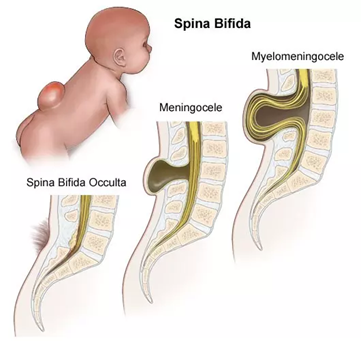A nurse in a pediatric clinic in caring for a child who has iron deficiency anemia and is to start taking ferrous sulfate syrup. Which of the following Instructions should the nurse give the parent?
Administer the medication at meal time
Administer the medication at bedtime.
Offer the medication through a straw
Dilute the medication with 240 mi. (Bar) of milk
The Correct Answer is C
A. Administer the medication at mealtime. Ferrous sulfate is best absorbed on an empty stomach because food, especially those rich in calcium or tannins, can interfere with its absorption. Administering it with meals reduces its effectiveness.
B. While bedtime administration is not contraindicated, it is not necessary. The timing of administration should focus on maximizing absorption, typically between meals or on an empty stomach.
C. Ferrous sulfate can stain teeth if taken orally in liquid form. Using a straw minimizes contact with teeth, reducing the risk of discoloration. Parents should also be advised to encourage the child to rinse their mouth after taking the medication.
D. Dilute the medication with 240 mL of milk. Milk contains calcium, which inhibits the absorption of iron. Ferrous sulfate should not be taken with milk or dairy products to ensure optimal absorption.

Nursing Test Bank
Naxlex Comprehensive Predictor Exams
Related Questions
Correct Answer is B
Explanation
A. Methylprednisolone: Methylprednisolone is a corticosteroid used for long-term management and prevention of asthma exacerbations. It has anti-inflammatory effects and is not typically used for immediate relief during an acute asthma attack.
B. Albuterol: Albuterol is a short-acting beta-agonist bronchodilator, which is the first-line medication for relieving acute bronchoconstriction during an asthma attack. It works quickly to open the airways and improve breathing.
C. Fluticasone: Fluticasone is an inhaled corticosteroid used for long-term asthma control and prevention of symptoms. It has anti-inflammatory effects but is not used for immediate relief during an acute asthma attack.
D. Beclomethasone: Beclomethasone is also an inhaled corticosteroid used for long-term asthma control and prevention of symptoms. Like fluticasone, it is not used for immediate relief during an acute asthma attack.
Correct Answer is D
Explanation
A. Promote maternal-infant bonding: While promoting maternal-infant bonding is essential for the overall well-being of the newborn and family, it may not be the priority in this situation. The immediate focus is on medical management and preventing complications associated with the myelomeningocele.
B. Provide age-appropriate stimulation: Age-appropriate stimulation is important for newborn development, but in the case of a newborn with a myelomeningocele awaiting surgery, the priority is to minimize any potential risk of injury or infection to the exposed neural tissue.
C. Educate the parents about the defect: Education about the myelomeningocele and its long-term implications is crucial for the parents' understanding and ability to care for their child. However, while important, this may not be the priority at the immediate moment.
D. Maintain integrity of the sac: This is the priority nursing goal in caring for a newborn with a myelomeningocele awaiting surgery. The sac covering the exposed neural tissue must be carefully protected to prevent infection and further damage. Measures such as keeping the sac moist with sterile saline dressings and preventing trauma to the area are essential to maintain its integrity.

Whether you are a student looking to ace your exams or a practicing nurse seeking to enhance your expertise , our nursing education contents will empower you with the confidence and competence to make a difference in the lives of patients and become a respected leader in the healthcare field.
Visit Naxlex, invest in your future and unlock endless possibilities with our unparalleled nursing education contents today
Report Wrong Answer on the Current Question
Do you disagree with the answer? If yes, what is your expected answer? Explain.
Kindly be descriptive with the issue you are facing.
